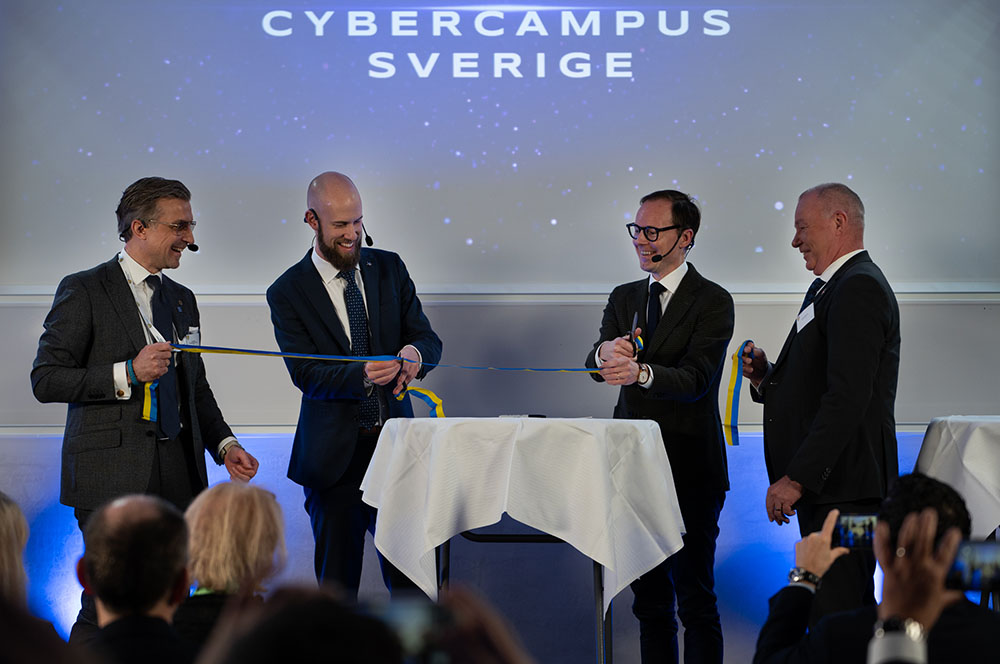Inaguration of Sweden's first cyber campus

The need for increased cyber security is growing exponentially. The Swedish government is investing just over SEK 100 million in the coming years in Cybercampus Sweden, an initiative inaugurated today at KTH Royal Institute of Technology. The purpose of the investment is to strengthen both the supply of skills and research in cyber security. Minister for Education Mats Persson and Minister for Civil Defense Carl-Oskar Bohlin attended the opening ceremony.
Cybercampus Sweden is a national initiative and a collaboration between universities, universities of applied sciences, institutes, authorities and companies across Sweden. Cybercampus Sweden aims to enable groundbreaking research, innovation and education for cybersecurity and defense beyond what is possible for individual organizations to achieve. The initiative will meet needs that are not addressed by any of the other actors in the cybersecurity field, strengthening both society's resilience and Sweden's competitiveness.
David Olgart is the director of Cybercampus Sweden. With Cybercampus Sweden, he explains, Sweden will be able to develop the same skills supply, research and innovation in cyber security to countries such as Switzerland, Germany and France. “We can now apply the results developed from the planning work, which has been crucial in addressing all the wise views expressed in workshops and meetings with stakeholders from all over Sweden”, says Olgart.
Staff recruitment will begin immediately in order to establish Cybercampus Sweden as a national education and research environment. Work on detailing the roadmap going forward on education and joint research initiatives is also progressing.
What will happen in the longer term?
“The deteriorating international situation and recent cybersecurity incidents show the importance of having a meeting place where we can share expert advice and have discussions on the complex challenges we face. This is necessary to contribute to a resilient and cybersecure digitalized Sweden. It is therefore important to establish partnerships that ensure access to interdisciplinary skills and resources from all over Sweden," says Olgart.
Text: Peter Asplund
